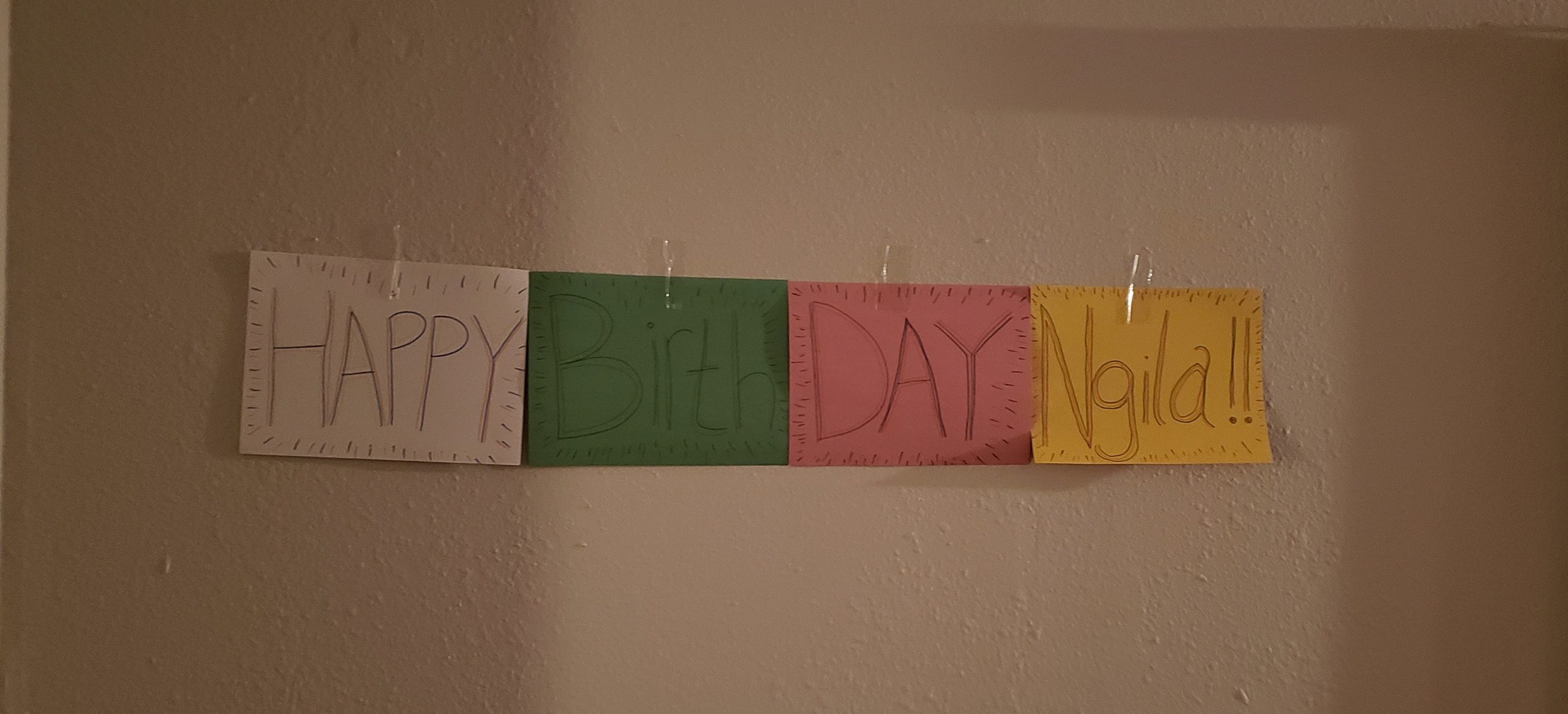A Warm Welcome During a Pandemic
When Kaboba Kalonda and his family first heard about COVID-19, they were worried about only one thing – that their long-held dream of resettlement in the U.S. was over. “So many people in Zambia were travelling on the same day that we travelled, but only half of the people were allowed to board (the plane),” Kaboba recalled. We feared they wouldn’t allow us to board.”
When the Kalonda family’s travel notice reached us at Exodus, we had to think differently about how we would welcome a family during a pandemic. With very little time to spare, staff rushed to set up an apartment , and on the day of the family’s arrival on March 17, things were chaotic. Much of their paperwork was missing, the interpreter called in sick, and we almost missed the family at the airport when their flight arrived an hour early. The kids thought it was funny when we sang “happy birthday” to demonstrate proper hand washing techniques. “It’s our sister Ngila’s birthday today!” they exclaimed. Staff hung up a homemade birthday banner to celebrate. The next day, as social distancing took effect across Indiana, we pivoted to delivering services to our new friends by phone and video.
“I’ve considered it a blessing to be able to travel during this time. It looked as though this was very special for us. Other people were prevented from travelling, and we came. It is a blessing that we made it. A blessing from God.”
It is certainly not the first crisis this family has faced. In 1996, Kaboba lost his wife, and he became a widowed father to five children. Then two years later, war forced him from his home in the Democratic Republic of Congo. He sent three of his children to live with their aunt, while he crossed the border into Zambia with his two youngest sons. They spent 22 years in two different refugee camps and Kaboba’s family grew when he later remarried and had three daughters.
After years of having no home to call his own, Kaboba was overjoyed to receive the news that his family would be resettled in the United States. “I was very happy with the news. It was a joy- a great joy.”
Three months after their arrival in Indiana, Exodus has continued to provide essential resettlement services to the family, working remotely to help them adjust to their new life in Indiana as well as the challenges of the pandemic. Our youth program coordinator enrolled the kids in Perry Township Schools, and has been helping them navigate e-learning, including finding affordable internet and electronic devices for their kids. Although they have missed most of the school year, she made sure the girls were connected with their English as a Second Language teachers to improve their English over the summer. “The teachers do not know how to speak Kiswahili, so the kids have been trying their best to speak English with them,” Kaboba said.
Kaboba is also anxiously waiting to get a job, so that he can provide for his family. Most refugees find work with the help of our employment team within four months after their arrival but the impact of the pandemic on the local economy means it may take longer for Kaboba.
She also matched two of the daughters with volunteer mentors through our youth mentor program. The volunteers have been mentoring them virtually and providing them with support as they are learning English.
Kaboba and his wife have been busy at home attending virtual English classes through Exodus Monday through Thursday. They also completed their two-day cultural orientation class via video conferencing with us. But social distancing has not been without its challenges. “I have noticed that the coronavirus has been of hindrance because we don’t meet with Exodus staff often,” Kaboba said. “Someone welcomed us at the airport, and we went to the Exodus office once to meet our case manager. Everything else has been through the phone. Because of lack of contact I am receiving a lot of letters in the mail that I can sometimes read and understand, but I sometimes can’t understand. Since this is a new country for us, we do not know this area, so it would be necessary to know where to go to worship, to shop, where the schools are, but we have not yet been able to do that.”
Kaboba is also anxiously waiting to get a job, so that he can provide for his family. Most refugees find work with the help of our employment team within four months after their arrival but the impact of the pandemic on the local economy means it may take longer for Kaboba.
Yet, as we have seen many times before, refugees are some of the most resilient individuals in the world. They have important lessons of hope and gratitude to teach us, and Kaboba and his family are no exception.
“I’ve considered it a blessing to be able to travel during this time. It looked as though this was very special for us. Other people were prevented from travelling, and we came. It is a blessing that we made it. A blessing from God.”


